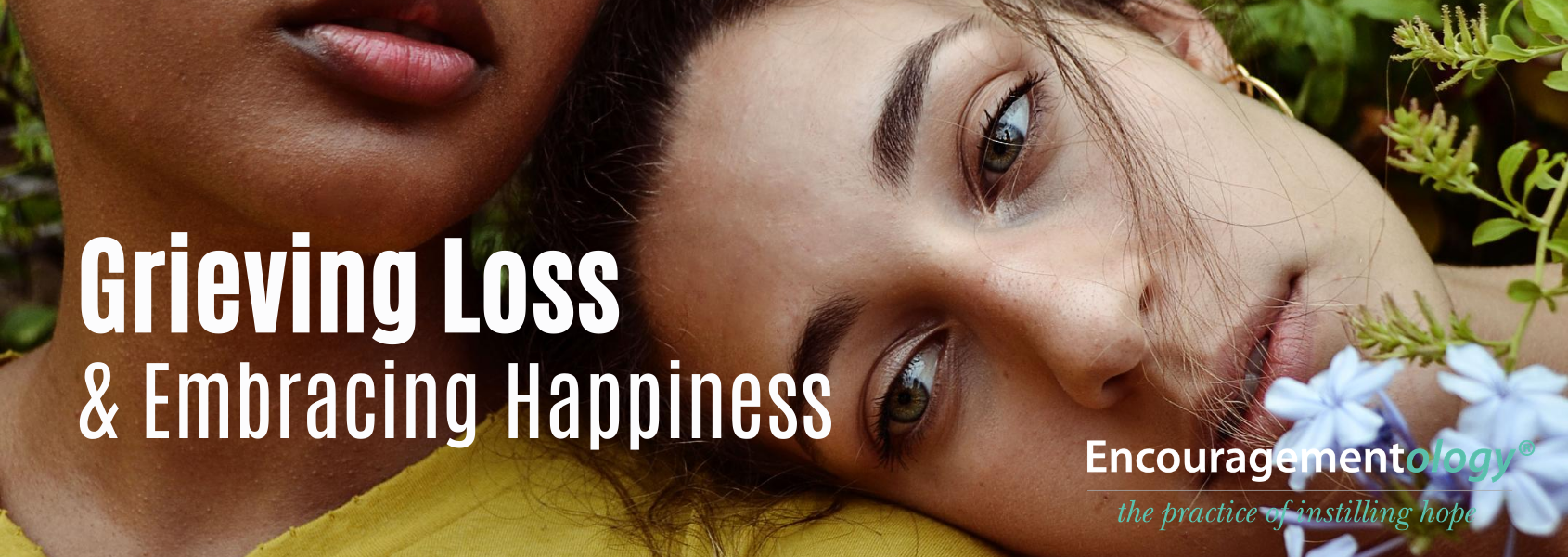SHOW NOTES
On this show… we are going to complete the circle. Loss is inevitable and grieving happens whether we ask for it or not but happiness is a pursuit. Let’s talk about the many losses that trigger the grieving process whether it’s an insignificant disappointment or a loss that shakes us to our core. How we handle loss greatly impacts how we embrace life and our motivation or happiness. You wouldn’t want one without the other. Loss can be a cruel teacher but without loss, one can’t truly appreciate happiness & joy.
Might as well start with dark and move to the light right? But why does the grieving process always conjure the idea of sadness, extended mourning, prolonged grief? In fact, the dictionary’s definition of grief is; deep sorrow, especially that caused by someone’s death. What is sorrow? A feeling of deep distress caused by loss, disappointment, or other misfortune suffered by oneself or others.
So what is grief? I found some really helpful information from the helpguide.com or understanding dealing with grief.
The grieving process is not the same for everyone
Grieving is a highly individual experience; there’s no right or wrong way to grieve. How you grieve depends on many factors, including your personality and coping style, your life experience, your faith, and how significant the loss was to you.
We cover some different myths about grieving like this on:
Myth: The pain will go away faster if you ignore it
Fact: Trying to ignore your pain or keep it from surfacing will only make it worse in the long run. For real healing, it is necessary to face your grief and actively deal with it.
While grieving a loss is an inevitable part of life, there are ways to help cope with the pain:
- Acknowledge your pain.
- Accept that grief can trigger many different and unexpected emotions.
- Understand that your grieving process will be unique to you.
- Seek out face-to-face support from people who care about you.
- Support yourself emotionally by taking care of yourself physically.
- Recognize the difference between grief and depression.
We cover the five stages of grief
- Denial: “This can’t be happening to me.”
- Anger: “Why is this happening? Who is to blame?”
- Bargaining: “Make this not happen, and in return I will ____.”
- Depression: “I’m too sad to do anything.”
- Acceptance: “I’m at peace with what happened.”
I talk about the recent loss of my Father from a long-term illness and facility and how my grieving process started over more than once.
We walk through the emotional symptoms of grief:
Shock and disbelief
Sadness
Guilt
Anger
Fear
And some of the physical symptoms:
Fatigue
Nausea
Lowered immunity
Weight loss or weight gain
Aches and pains
Insomnia
We explore complicated grief and the importance of reaching out and being willing to round the circle to seeking happiness.
How do you remain optimistic in the face of severe challenges? Here are three quick tips that can make a big difference I found in an article BY JUSTIN BARISO for inc.com. Try these in the morning to put you in on the path to seeking happiness.
- Find someone to thank
- Pick a time to stop working
- Plan to give
CHALLENGE: Notice and explore your emotions to determine what you need. Reach out and embrace help and the joy it brings. You have the power to nurture or push yourself as needed. It’s your choice.
I Know YOU Can Do It!

